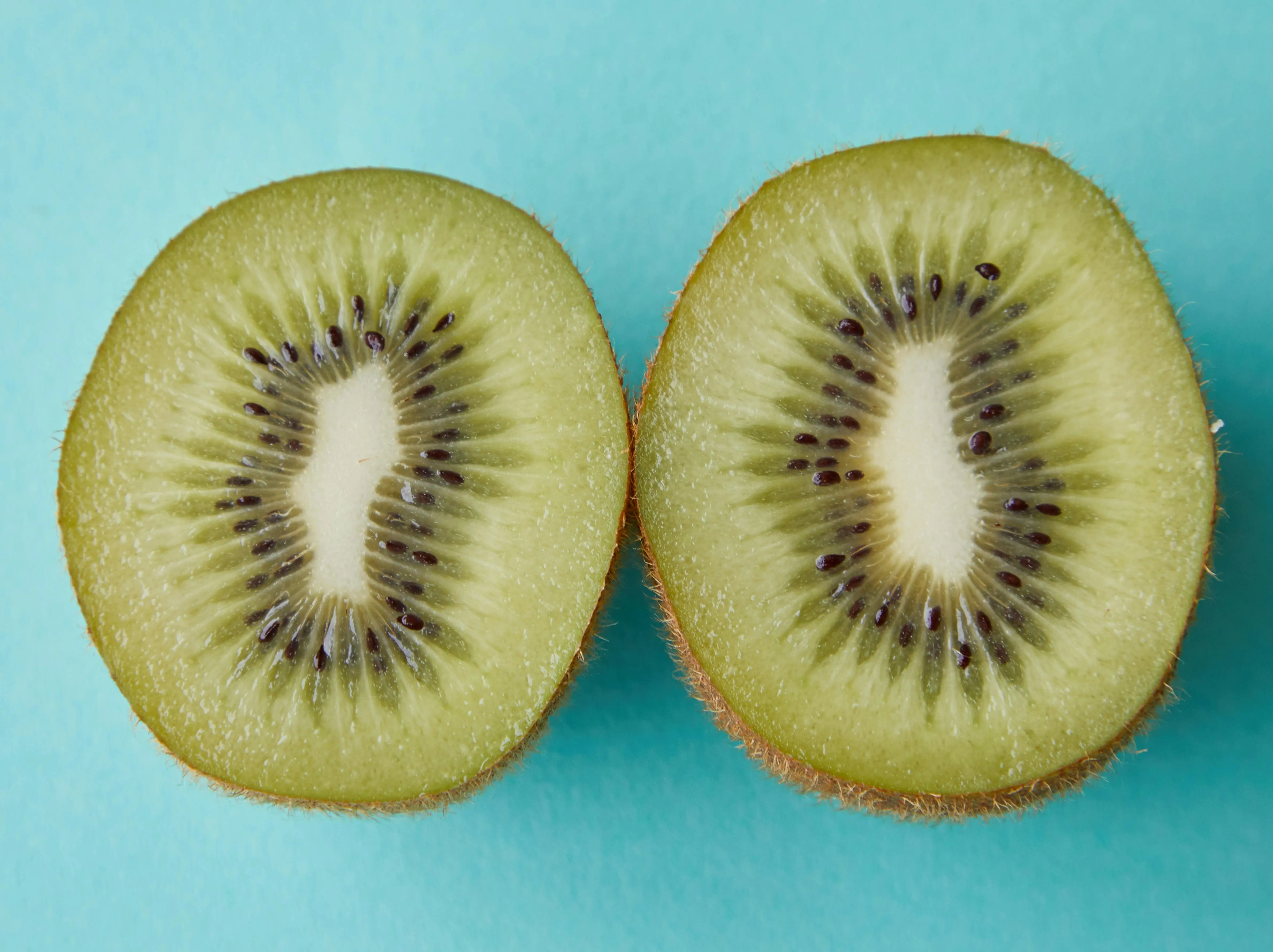Kiwi fruit, also known as Chinese gooseberry, is a small fruit packed with numerous health benefits.

Blog
10 Health Benefits of Kiwi Fruit You Should Know
Kiwi fruit, also known as Chinese gooseberry, is a small fruit packed with numerous health benefits. This nutrient-dense fruit is known for its vibrant green flesh, unique taste, and impressive nutritional profile. In this comprehensive guide, we will explore the top 10 benefits of kiwi fruit and why it should be a staple in your diet.
Before diving into the benefits, it's essential to understand the nutritional profile of kiwi fruit. Kiwi is rich in vitamins, minerals, and antioxidants, making it a powerhouse of nutrients.
Kiwi is an excellent source of vitamins C, K, E, and folate. It also contains significant amounts of potassium, magnesium, and calcium. These nutrients play vital roles in various bodily functions and contribute to overall health.
Kiwi fruit is packed with antioxidants, including flavonoids and carotenoids, which help protect the body against oxidative stress and reduce the risk of chronic diseases.
Kiwi fruit is exceptionally high in vitamin C, with just one medium-sized kiwi providing over 100% of the recommended daily intake. Vitamin C is crucial for maintaining a healthy immune system, helping the body fight off infections and illnesses.
Regular consumption of kiwi can enhance the body's immune response by promoting the production of white blood cells, which are essential for combating pathogens. Additionally, the antioxidants in kiwi help reduce inflammation and support overall immune function.
Kiwi is an excellent source of dietary fiber, which is essential for maintaining a healthy digestive system. The fiber in kiwi aids in regular bowel movements and prevents constipation.
Kiwi contains a natural enzyme called actinidin, which helps break down proteins and improves digestion. This enzyme makes kiwi an ideal fruit for those with digestive issues, as it can alleviate symptoms of indigestion and bloating.
Kiwi fruit is rich in potassium, a mineral that plays a critical role in heart health. Potassium helps regulate blood pressure by balancing the effects of sodium in the body, reducing the risk of hypertension and cardiovascular diseases.
The antioxidants in kiwi, such as polyphenols and vitamin E, help protect the heart by reducing oxidative stress and preventing the oxidation of LDL cholesterol. This, in turn, lowers the risk of atherosclerosis and heart attacks.
Kiwi is a low-calorie fruit, making it an excellent choice for those looking to lose weight. Despite its low calorie content, kiwi is nutrient-dense, providing essential vitamins and minerals without adding extra calories.
The high fiber content in kiwi promotes feelings of fullness, helping to control appetite and reduce overall calorie intake. Including kiwi in your diet can support weight loss efforts by curbing hunger and preventing overeating.
The high vitamin C content in kiwi plays a crucial role in collagen production, which is essential for maintaining healthy skin. Collagen helps keep the skin firm, elastic, and youthful-looking.
The antioxidants in kiwi protect the skin from damage caused by free radicals, reducing the risk of premature aging and skin conditions. Regular consumption of kiwi can lead to a healthier, more radiant complexion.
Studies have shown that the high vitamin C and antioxidant content in kiwi can help reduce asthma symptoms, such as wheezing and shortness of breath. These nutrients help decrease inflammation in the airways and improve overall lung function.
The immune-boosting properties of kiwi also play a role in preventing respiratory infections, such as the common cold and flu. Including kiwi in your diet can help keep your respiratory system healthy and resilient.
Kiwi fruit contains lutein and zeaxanthin, two important antioxidants that are beneficial for eye health. These compounds help protect the eyes from harmful blue light and reduce the risk of age-related macular degeneration (AMD).
The vitamin C in kiwi also supports eye health by strengthening the blood vessels in the eyes and reducing the risk of cataracts. Regular consumption of kiwi can help maintain good vision and prevent eye-related issues.
Kiwi has a low glycemic index (GI), meaning it causes a slow and steady rise in blood sugar levels. This makes kiwi an excellent fruit choice for individuals with diabetes or those looking to manage their blood sugar levels.
The fiber content in kiwi helps slow down the absorption of sugar into the bloodstream, preventing spikes in blood sugar levels. Including kiwi in a balanced diet can aid in maintaining stable blood sugar levels.
Kiwi is a good source of calcium and magnesium, two essential minerals for bone health. These minerals help maintain bone density and strength, reducing the risk of osteoporosis and fractures.
Vitamin K, found in kiwi, plays a crucial role in bone metabolism by promoting the binding of calcium to the bone matrix. This helps maintain strong and healthy bones.
Kiwi is a natural source of serotonin, a neurotransmitter that helps regulate sleep. Consuming kiwi before bedtime can improve sleep quality and duration by promoting relaxation and reducing the time it takes to fall asleep.
The antioxidants in kiwi also contribute to better sleep by reducing oxidative stress and inflammation, which can interfere with sleep patterns. Including kiwi in your diet can lead to a more restful and rejuvenating sleep.
Kiwi fruit is a nutritional powerhouse that offers numerous health benefits. From boosting immunity and aiding digestion to promoting heart health and enhancing skin health, kiwi is a versatile fruit that can improve overall well-being. Including kiwi in your daily diet can help you reap these benefits and support a healthier lifestyle.
The SGPT blood test is a vital diagnostic tool for assessing liver health and detecting liver damage. Understanding the purpose, procedure, and implications of this test can help individuals recognize potential liver issues and seek timely medical intervention. By maintaining regular check-ups and following prescribed treatments, those with liver conditions can manage their health effectively and improve their quality of life. Understanding the SGPT test and its role in diagnosing liver disorders is crucial for maintaining liver health and overall well-being. Early detection and appropriate management of liver conditions can prevent complications and promote long-term health.
HealthOK Global provides expert insights on nutrition, meal planning, and healthy eating habits. Contact our FREE 24 x 7 Healthcare Helpline at +91-8047190955 for assistance.
Before diving into the benefits, it's essential to understand the nutritional profile of kiwi fruit. Kiwi is rich in vitamins, minerals, and antioxidants, making it a powerhouse of nutrients.
Kiwi fruit is exceptionally high in vitamin C, with just one medium-sized kiwi providing over 100% of the recommended daily intake. Vitamin C is crucial for maintaining a healthy immune system, helping the body fight off infections and illnesses.
Kiwi fruit is a nutritional powerhouse that offers numerous health benefits. From boosting immunity and aiding digestion to promoting heart health and enhancing skin health, kiwi is a versatile fruit that can improve overall well-being. Including kiwi in your daily diet can help you reap these benefits and support a healthier lifestyle.
Need Personalized Health Guidance?
Get expert advice tailored to your specific health needs from our qualified healthcare professionals.





